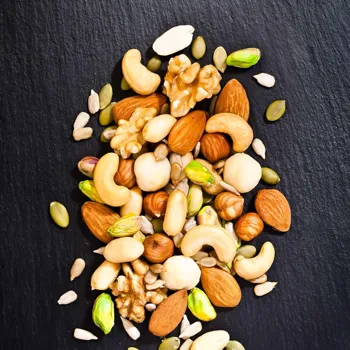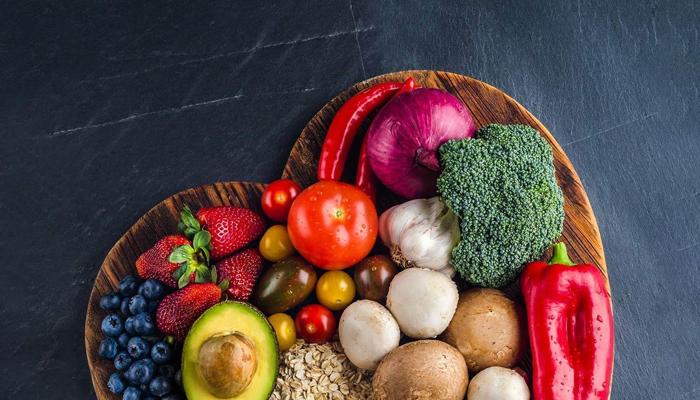Unlock the secrets of a healthy diet by understanding macronutrients. Dive into the building blocks of nutrition!
In the hustle-bustle of our daily lives, many a time we tend to overlook the importance
of a balanced diet. We grab that quick samosa or a plate of chaat without giving a second thought to what it's doing to our bodies.
But understanding the basics of nutrition can dramatically improve our health and well-being. Among the many aspects of nutrition, macronutrients hold a pivotal place. These are the essential nutrients that our bodies need in large quantities to function correctly.
Let's break down what macronutrients are and why they're so important for maintaining a healthy lifestyle, as a simple guide for our Indian readers.
Macronutrients: key pillars of diet for optimal health and energy
Macronutrients are essentially the three main pillars of our diet: carbohydrates, proteins, and fats. They provide our bodies with energy, which is measured in calories. Each macronutrient plays a unique role, and consuming them in the right proportions is crucial for optimal health.
Just like a house needs strong pillars, our bodies need these macronutrients to stand strong and function at their best. Ignoring these can lead to weakness and our body not functioning at optimal level. Finding the proper ratio and level of each is a must-do for an average human being .
Remember, food is not just about taste; it's about fueling our bodies with the right ingredients.
Carbohydrates are vital for energy, simple vs complex types explained
Carbohydrates are our body’s primary source of energy. Think of them as the fuel that keeps our engine running. They are broken down into glucose, which our cells use for energy. Carbohydrates come in two main forms: simple and complex.
Simple carbohydrates, found in sugary drinks and processed foods, provide a quick burst of energy but can lead to energy crashes. Complex carbohydrates, found in whole grains, fruits, and vegetables, provide a more sustained release of energy and are packed with fiber, vitamins, and minerals.
Indian diet: Opt for complex carbs like whole wheat, oats, millets, dals for energy and digestive health. Avoid simple carbs
For our Indian diet, good sources of complex carbohydrates include whole wheat atta (used for roti and chapati), brown rice, oats, millets like ragi and bajra, and a variety of dals (lentils) and legumes.
These foods not only provide energy but also contribute to digestive health thanks to their high fiber content. Try swapping white rice for brown rice and including a serving of dal in your daily meals.
Avoid excessive white bread, sugary snacks, and processed foods, which are often loaded with simple carbs and empty calories. Choose wisely.
Proteins are crucial for body repair and strength
Proteins are the building blocks of our body. They are essential for repairing tissues, building muscle, and producing enzymes and hormones. Our hair, skin, and nails are also primarily made of protein. Protein is like the brick and mortar of our body, giving it structure and strength.
Without enough protein, our bodies can't rebuild and repair themselves properly, leading to fatigue, weakened immunity, and muscle loss.
Variety of vegetarian protein sources essential for health
Good sources of protein for vegetarians in India include dals (like toor dal, moong dal, and masoor dal), paneer (Indian cheese), tofu (soybean curd), chickpeas, kidney beans, and nuts and seeds.
Incorporate a variety of these sources into your diet to ensure that you're getting all the essential amino acids. Amino acids are the components of proteins. A simple rule to follow: ensure every meal has a source of protein, and that will ensure a healthy daily diet.
Remember that adequate protein is key to maintaining muscle mass, especially as we age.
Fats play vital roles in the body; choose good fats for health
Fats are often misunderstood but are crucial for many bodily functions. They provide energy, help absorb vitamins, and protect our organs. Fats are also necessary for producing hormones and maintaining healthy cell membranes. However, not all fats are created equal.
There are good fats (unsaturated fats) and bad fats (saturated and trans fats). Unsaturated fats, found in nuts, seeds, and vegetable oils, are beneficial for heart health.
Saturated and trans fats, found in processed foods and fried items, can raise cholesterol levels and increase the risk of heart disease.
Include healthy fats like nuts, seeds, oils for better health
In the Indian context, good sources of healthy fats include nuts like almonds, walnuts, and cashews (in moderation), seeds like flaxseeds and chia seeds, and oils like groundnut oil, mustard oil, and olive oil.

Avoid excessive consumption of fried foods like samosas, pakoras, and puri, as these are often high in unhealthy fats. Substitute these with healthier alternatives. Incorporating a small amount of nuts and seeds into your daily diet can provide essential fatty acids and improve overall health.
Remember that fat is like oil for the engine; it keeps everything smooth.
Balanced diet includes right ratio of macros for individual needs
Now we know about macronutrients, but how do we balance them? A balanced diet is one that includes the right proportion of carbohydrates, proteins, and fats to meet your individual needs. The ideal ratio can vary depending on your age, activity level, and health goals.
A general guideline is to aim for 45-65% of your daily calories from carbohydrates, 10-35% from protein, and 20-35% from fats. However, it's always best to consult with a nutritionist or dietitian to determine the right balance for you.
Focus on whole foods, balance portions, avoid processed items for a healthier diet
To achieve a balanced diet, focus on eating whole, unprocessed foods. Fill your plate with a variety of fruits, vegetables, whole grains, and lean protein sources. Be mindful of portion sizes and limit your intake of sugary drinks, processed snacks, and fried foods.
A simple way to start is by making small, gradual changes to your diet. For example, swap sugary breakfast cereals for oats with fruits and nuts. Pack a homemade lunch instead of eating out. Drink lots of water throughout the day.
Such changes can add up in the long run and improve your overall health. Remember, it's about making sustainable lifestyle changes rather than following fad diets.
Listen to your body's signals for optimal health
Pay attention to your body's signals. Are you feeling energetic and satisfied after your meals, or are you experiencing energy crashes and cravings? Your body is the best guide to tell you what it needs. So, become familiar with nutrient information to optimize and achieve a healthy life.
Understanding the basic principles of nutrition and macronutrients can empower you to make informed food choices and take control of your health. It's not about restricting yourself or following rigid rules but about nourishing your body with the right fuel to thrive.
AI Generated Content. Glance/InMobi shall have no liability for the content












